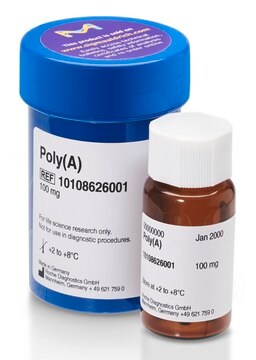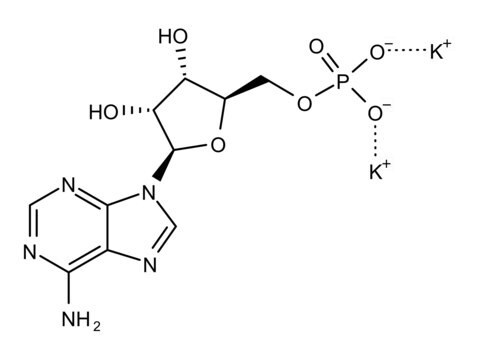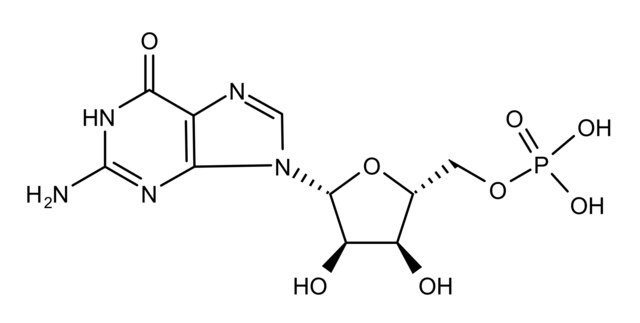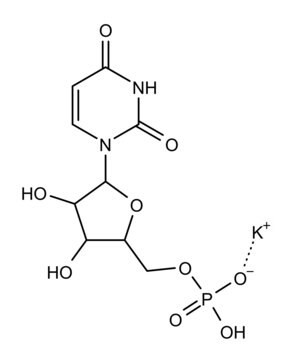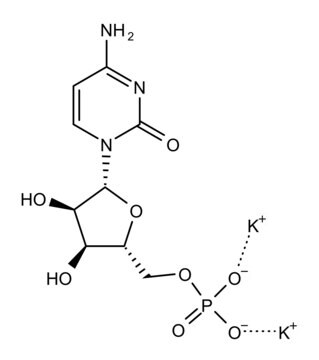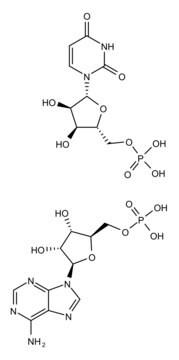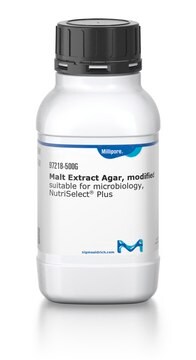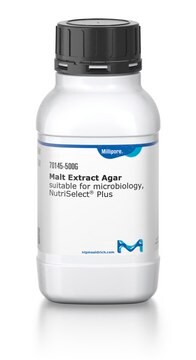P6905
Polythymidylic acid sodium salt
homopolymer
Synonym(s):
Poly(dT)
Sign Into View Organizational & Contract Pricing
All Photos(1)
About This Item
Recommended Products
Looking for similar products? Visit Product Comparison Guide
Application
Polythymidylicacid sodium salt has been used as a control to compare with poly(A) in aforce-extension experiment to investigate differences in mechanical properties. Polythymidylic acid (Poly(dT)) may be used to study the characteristics of single-stranded DNA binding proteins.
Biochem/physiol Actions
Polythymidylicacid, also known as poly-deoxythymidine (poly-dT), has various applications inmolecular biology research. One of its most common uses is for mRNApurification, where it is utilized to isolate mRNA from a mixture of RNAmolecules for the preparation of cDNA libraries. In addition, poly-dT can beused as a tool for the detection of microbial contamination in water samples.It can also be used for the purification of mRNA-protein fusion molecules inmRNA Display selections.
Unit Definition
One unit will yield an A260 of 1.0 in 1.0 ml of water (1 cm light path).
Storage Class Code
11 - Combustible Solids
WGK
WGK 3
Flash Point(F)
Not applicable
Flash Point(C)
Not applicable
Personal Protective Equipment
dust mask type N95 (US), Eyeshields, Gloves
Certificates of Analysis (COA)
Search for Certificates of Analysis (COA) by entering the products Lot/Batch Number. Lot and Batch Numbers can be found on a product’s label following the words ‘Lot’ or ‘Batch’.
Already Own This Product?
Find documentation for the products that you have recently purchased in the Document Library.
Alexander G Kozlov et al.
Biochemistry, 49(38), 8266-8275 (2010-08-28)
Deinococcus radiodurans single-stranded (ss) DNA binding protein (DrSSB) originates from a radiation-resistant bacterium and participates in DNA recombination, replication, and repair. Although it functions as a homodimer, it contains four DNA binding domains (OB-folds) and thus is structurally similar to
Byul Nim Oh et al.
Dalton transactions (Cambridge, England : 2003), 40(24), 6494-6499 (2011-05-13)
In this study, an assay to quantify the presence of mercuric ions and methyl mercury by double-stranded DNA containing a poly(dT) sequence was developed using a light switch compound, Ru(phen)(2)(dppz)(2+) (1), which is known to intercalate into double-stranded DNA. Upon
Gregor Witte et al.
Nucleic acids research, 33(5), 1662-1670 (2005-03-23)
The highly conserved bacterial single-stranded DNA-binding (SSB) proteins play an important role in DNA replication, repair and recombination and are essential for the survival of the cell. They are functional as tetramers, in which four OB(oligonucleotide/oligosaccharide binding)-folds act as DNA-binding
Paweł Filipkowski et al.
Extremophiles : life under extreme conditions, 10(6), 607-614 (2006-08-10)
We report the identification and characterization of the single-stranded DNA-binding protein (SSB) from the mesophile and highly radiation-resistant Deinococcus radiopugnans (DrpSSB). PCR-derived DNA fragment containing the complete structural gene for DrpSSB protein was cloned and expressed in Escherichia coli. The
Józef Kur et al.
Acta biochimica Polonica, 52(3), 569-574 (2005-08-06)
Single-stranded DNA-binding proteins (SSBs) play essential roles in DNA replication, recombination, and repair in bacteria, archaea and eukarya. The SSBs share a common core ssDNA-binding domain with a conserved OB (oligonucleotide/oligosaccharide binding) fold. This ssDNA-binding domain was presumably present in
Our team of scientists has experience in all areas of research including Life Science, Material Science, Chemical Synthesis, Chromatography, Analytical and many others.
Contact Technical Service